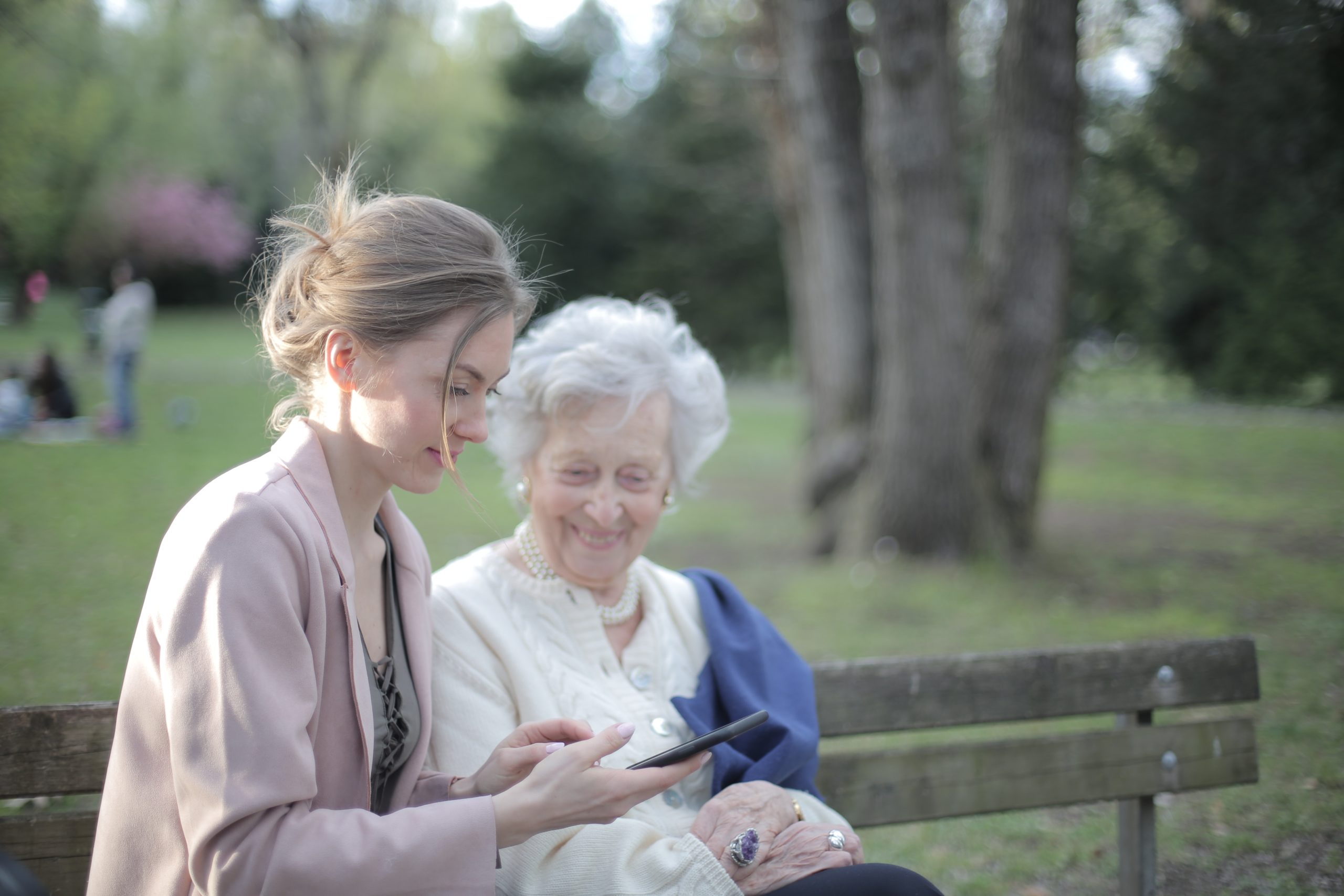When you picture the mythical Fountain of Youth, do you imagine it as a spray of diverse, gut-healthy bacteria? No, because, frankly, that sounds disgusting. The scientific community, though, is giving this idea another look.
Your microbiome, the diverse community of beneficial bacteria in your gut, can affect nearly every aspect of your health.
In this article, you’ll learn about the following:
- How your gut microbiota naturally changes with age.
- How, in older people, those changes can contribute to age-related health challenges.
- Steps you can take to support your gut health and overall health as you grow older
“I sleep better, I have more energy, I have less aches and pains. I’m enjoying my new life, and I know you can too!”
Earl, Betr Success Story.
Your Microbiota Through the Years
Only days after we’re born, we begin to develop one of the most important relationships of our lives. We’re talking about the beneficial bacterial species that begin to colonize our gut.
These helpful bacteria come from all over our environment. Some of the earliest we get from our mom is during the birthing process, breastfeeding, and snuggles. Other factors determine the makeup of our microbiota as well. Factors like:
- Geographical location
- Genetic makeup
- Diet
- Sex
- Disease/health
Our microbiome has developed into a “mini” version of adult gut bacteria by age three. Depending on lifestyle, our microbiome stays consistent throughout adulthood. As we move towards old age, the bacterial population of our gut begins to shift in predictable ways.
Takeaway
Our microbiota goes through changes during our lifespan. From the age of three through adulthood, it’s relatively stable, then begins to change as we enter old age.
There Goes the Neighborhood.
Our gut is like a neighborhood for the bacteria that live there. For most of our life, the neighborhood is the same. The neighbors keep their lawns mowed, grow pretty flower gardens, and pull the weeds around their property.
As we enter old age, some new folks move onto the block. These new folks aren’t very neighborly. They don’t own a lawnmower. They let weeds sprout.
Think of the substances that your gut bacteria produce like vegetables and weeds. Healthy bacteria produce healthy metabolites, the veggies, and substances our bodies need to function correctly. As we age, the neighborhood balance begins to lean toward unhealthy bacteria, which produce inflammatory metabolites. Like weeds, these inflammatory metabolites spread throughout the body and cause disease and dysfunction.
Takeaway
As we enter old age, the balance of our gut bacteria shifts toward species more likely to contribute to inflammation, disease, and age-related deterioration.
“Inflammaging”… A Cool Word for a Real Bummer
Scientists have a great word to describe the age-related increase in bodily inflammation- inflammaging. While it may sound cool, inflammaging is definitely not cool. It describes many of the aches, pains, and ills we experience as older people.
Inflammaging is a new word; it’s not a new concept. Over 100 years ago, Elie Metchnikoff (an old Russian scientist guy) guessed that the increasing physical difficulties of aging resulted from “putrefactive bacterial autotoxins,” which is another super cool phrase that describes something unpleasant.
Metchnikoff was not far from the truth. One metabolite of healthy bacteria is short-chain fatty acids (SCFAs). They fight inflammation and contribute to our mood, sleep, immune system, cardiovascular system, and blood sugar balance.
As we age, our gut’s bacterial community shifts away from healthy, SCFA-producing bacteria towards bacteria that produce inflammatory metabolites. One of the effects of these inflammatory metabolites is an increase in intestinal permeability, or “Leaky Gut.”
Leaky Gut syndrome is the name for the holes or spaces in our gut cell wall that let toxic substances in and out of the gut. These substances cause a cycle of unhealthy inflammation leading to dysfunction and disease.
Takeaway
As we enter old age, there is a decrease in healthy bacterial species and an increase in our gut’s unhealthy ones. The metabolites resulting from these age-related changes cause an increase in systemic inflammation known as inflammaging.
Still Going Strong!
“I’ve got a ‘pep in my step’ that has been missing for quite some time. I’ve noticed my inflammation has decreased in my body, and I have improved overall mobility.”
Brian, Betr Success Story.
Is healthy gut bacteria the key to IMMORTALITY?
Well…no, sorry. Science hasn’t figured the immortality thing out yet. We promise as soon as they do, we’ll tell you!
There is some good news, though! Even though we can’t avoid all inflammaging, there is evidence that we can take steps to minimize its impact and maximize healthy aging.
One recent study compared the gut microbiota, diet, and overall health of older adults living in the community versus those in long-term care. They found that individuals in the community had a healthier, more diverse microbiome. In looking at their diets, they also found that the individuals residing in the community exhibited dietary habits that included lower fat and higher fiber intake.
Fiber does more than just keep us “regular.” Fiber feeds the beneficial bacterial species in our gut. It helps them produce the healthy short-chain fatty acids that contribute positively to our health.
The “Western Diet,” high in fat, simple sugars, and low in fiber, is terrible for our gut microbiome. It doesn’t feed the “good” bacteria. Instead, it provides harmful bacteria with everything they need to produce inflammatory metabolites that negatively impact our health.
There’s also evidence that eating healthy bacteria in probiotic foods, supplements, and prebiotics can help support a healthy gut microbiome, which may help decrease the physical symptoms of aging.
Takeaway
Unhealthy changes in gut bacteria have been observed in frailer older individuals. A healthy diet focusing on fiber intake, probiotics, and prebiotic supplements can help support a healthy gut microbiome, supporting healthier aging.
With Age (and this information!) Comes Wisdom
“Betr Health has given me the tools and ambition to take care of myself long term so I can enjoy retirement and life.”
Tish, Betr Success Story.
Almost 2000 years ago, Galen (an old Greek doctor) prescribed a diet of “gruel, raw honey, vegetables, and fowl” to combat aging symptoms. Betr agrees with Galen that focusing on a healthy diet (minus the gruel) can contribute to more comfortable and active aging.
Let’s recap some of the wisdom we’ve gained from this article:
- Our microbiota goes through changes during our lifespan. From the age of three through adulthood, it’s relatively stable, then begins to change as we enter old age.
- As we enter old age, the balance of our gut bacteria shifts toward species more likely to contribute to inflammation, disease, and age-related deterioration.
- Aging is associated with a decrease in healthy bacterial species and an increase in our gut’s unhealthy ones. The metabolites resulting from these age-related changes cause an increase in systemic inflammation known as inflammaging.
- Unhealthy changes in gut bacteria have been observed in frailer older individuals. A healthy diet focusing on fiber intake, probiotics, and prebiotic supplements can help support a healthy gut microbiome, supporting healthier aging.
There are lots of ways we prepare for old age. We make sure that our families are taken care of (and our kids are off our cell phone plans!), we save for retirement, and we develop new hobbies and interests.
Adjusting your diet to support long-term health is just as important!
After reading this article, you may be asking yourself if your own health hurdles could be related to an unhealthy gut.
Explore Betr's risk-free trial to see if you could benefit from using food as medicine to rebuild your microbiome and realize the healthy potential you never knew you were missing!











